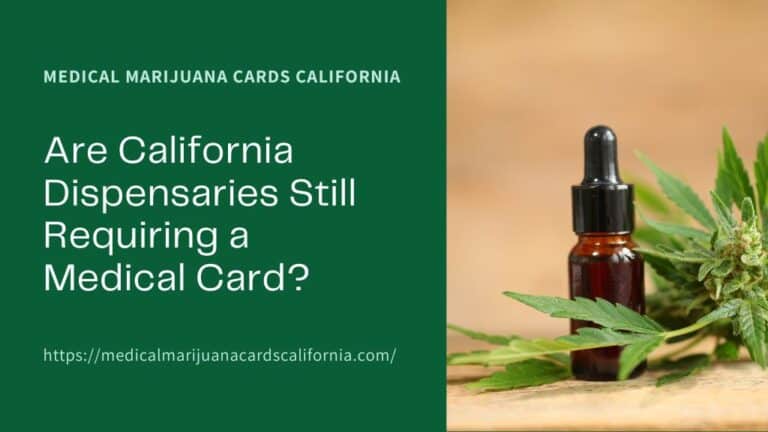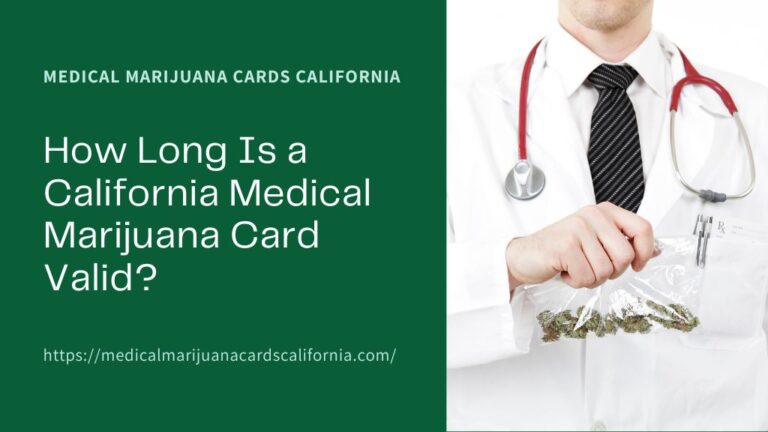Medical marijuana has been recognized for its potential to help manage a variety of health conditions, from chronic pain to epilepsy. In California, patients who could benefit from medical marijuana can apply for a medical marijuana card. This card is a legal document that allows patients to purchase, possess, and use medical marijuana as part of their treatment plan.
However, not everyone can just walk in and get a medical marijuana card. There are certain eligibility requirements that must be met. These requirements are in place to ensure that medical marijuana is used responsibly and only by those who truly need it for health reasons.
Understanding these eligibility requirements is the first step towards obtaining a medical marijuana card. It ensures that you’re well-prepared and increases your chances of a successful application.
In this article, we’ll provide a detailed explanation of these requirements, helping you navigate the process with ease.
Age Requirement
In the state of California, the minimum age requirement to apply for a medical marijuana card is 18 years old. This means that you must be at least 18 years of age to legally use medical marijuana for your health condition. This age requirement is in line with many other states that have legalized medical marijuana.
However, there are special considerations for minors. If a person under the age of 18 has a qualifying medical condition, they can still access medical marijuana. But they can’t do it alone. They need to have a parent or legal guardian apply on their behalf. This adult will act as the minor’s primary caregiver, responsible for managing the minor’s medical marijuana use.
Residency Requirement
Another key requirement for obtaining a medical marijuana card in California is residency. You must be a resident of the state to be eligible. This means you live in California and intend to stay. The state requires this to ensure that medical marijuana, which is legal in California, isn’t transported to states where it’s not legal.
But how do you prove you’re a resident? California accepts several forms of proof of residency. These can include:
California ID: A California driver’s license or a state-issued ID card is one of the most straightforward ways to prove residency.
Utility Bills: Bills for services like electricity, gas, or water that have your name and address on them can also serve as proof of residency.
Rental or Lease Agreement: If you’re renting your home, your rental or lease agreement, with your name and address, can be used as proof.
Official Mail: Official mail from a state agency or court can also be used, as long as it has your name and address.
Remember, the document you use must have your name and a California address to be considered valid proof of residency.
Qualifying Medical Conditions
In California, not all health conditions qualify for a medical marijuana card. The state has a specific list of medical conditions that are considered eligible. These include:
- Cancer: Due to its potential to help manage symptoms like nausea, pain, and loss of appetite, medical marijuana is often recommended for cancer patients.
- HIV/AIDS: Medical marijuana can help manage symptoms like appetite loss, nausea, and fatigue in HIV/AIDS patients.
- Epilepsy and Seizure Disorders: Certain strains of medical marijuana have been found to reduce the frequency and severity of seizures.
- Glaucoma: Medical marijuana can help reduce intraocular pressure in glaucoma patients.
- Multiple Sclerosis: Medical marijuana can help manage symptoms like muscle stiffness and spasms in MS patients.
- Chronic Pain: Chronic pain related to conditions like arthritis, fibromyalgia, endometriosis, and more can be managed with medical marijuana.
However, the list doesn’t end there. California law includes a clause for “any other chronic or persistent medical symptom.”
This means that if a patient has a health condition that isn’t on the list, but it’s severe and other treatments haven’t worked, a cannabis doctor can recommend medical marijuana. This could include conditions like insomnia, depression, post-traumatic stress disorder (PTSD), and more.
The decision ultimately lies with the evaluating physician. They will consider your health condition, symptoms, and previous treatment attempts to determine if medical marijuana could be beneficial for you.
Doctor’s Recommendation
In addition to meeting the age and residency requirements and having a qualifying medical condition, you also need a medical marijuana recommendation from a licensed physician to get a medical marijuana card in California. This recommendation is a formal document where the doctor states that they believe medical marijuana could help manage your health condition and symptoms.
But how do you get this recommendation? This is where the 420 evaluation process comes in. A 420 evaluation is a consultation with a licensed physician who is knowledgeable about medical marijuana. During this evaluation, the doctor will review your medical history, discuss your health condition and symptoms, and consider any previous treatments you’ve tried.
If the doctor determines that medical marijuana could be beneficial for you, they will issue the recommendation. This recommendation is then used to apply for a medical marijuana card.
Not all doctors are willing or able to provide medical marijuana recommendations. The doctor must be licensed in the state of California and must be willing to consider medical marijuana as a treatment option. Therefore, it’s often best to seek a 420 evaluation from a doctor or clinic that specializes in medical marijuana.
Conclusion
Understanding the eligibility requirements for a medical marijuana card in California is crucial for anyone considering medical marijuana as a treatment option. From age and residency requirements to having a qualifying medical condition and obtaining a doctor’s recommendation, each requirement plays a vital role in ensuring that medical marijuana is used responsibly and effectively.
Remember, while this guide provides a comprehensive overview of the eligibility requirements, laws and regulations can change. It’s always a good idea to consult with a healthcare professional or legal expert to get the most current and accurate information.
With the right knowledge and guidance, you can navigate the process of obtaining a medical marijuana card with confidence.
Note: This article’s content is provided for educational purposes only. This information is not intended to serve as a substitute for professional legal or medical advice, diagnosis, or treatment. If you have any concerns or queries regarding laws, regulations, or your health, you should always consult a lawyer, physician, or other licensed practitioner.

You can get a medical marijuana ID card with a physician’s recommendation. If you have one, your cannabis purchases are exempt from sales and use tax. Medical marijuana cards are valid for up to one year. Both patients and their primary caregivers can get a mmj card.
Recent Posts
Medical Conditions
Your primary care physician can recommend cannabis to help you manage any of these medical conditions.



